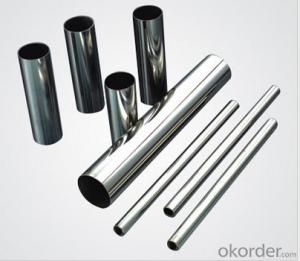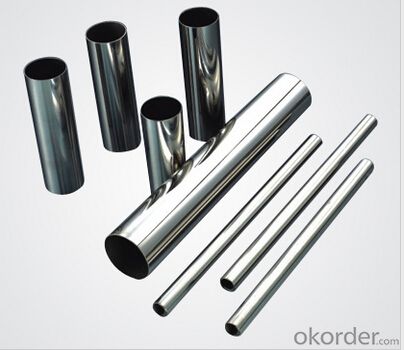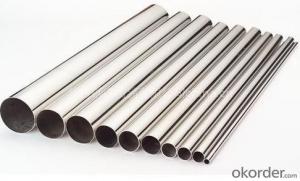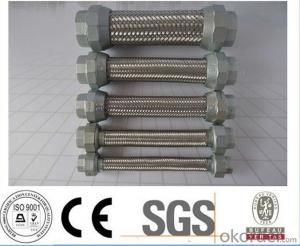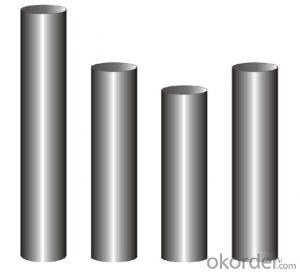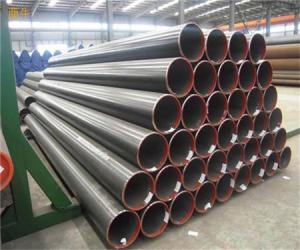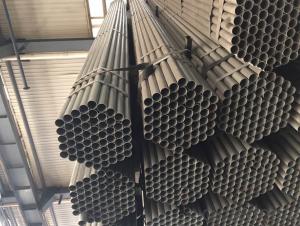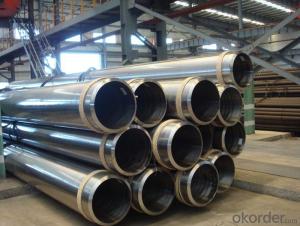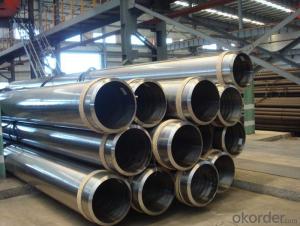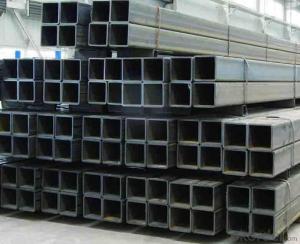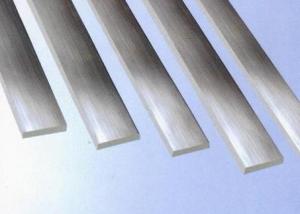Stainless Steel Welded Pipe mechanical Pipe ASTM A554/DIN/EN10296-2/ JIS G3446/GB/T 12770
- Loading Port:
- Ningbo
- Payment Terms:
- TT OR LC
- Min Order Qty:
- 25 m.t.
- Supply Capability:
- 5000 m.t./month
OKorder Service Pledge
OKorder Financial Service
You Might Also Like
1、Structure of Stainless Steel Welded Pipe mechanical Pipe ASTM A554/DIN/EN10296-2/ JIS G3446/GB/T 12770 Description:
Stainless steel welded pipe is actually a cover term, covering a wide range of alloy and making them suitable for different attributes that are used in a very wide and large numbers of different industries. Stainless steel pipe is resistant to erosion, highly flexible, powerful, easy to use, and can be done in distinct approaches, which means that more and more stainless steel was used as a construction material for large-scale, high impact buildings. It can be molded, rolling, and it can create amazing shapes to make it perfect, It is used as experimental buildings. Lightweight traits of hard welded steel pipe makes it perfect for things used in the construction of off shore oil and gas platforms. Crude oil is a corrosive substance and it is positive in the construction of the new drilling platform that uses high alloy, super austenitic welded steel pipe.
2、Main Features of Stainless Steel Welded Pipe mechanical Pipe ASTM A554/DIN/EN10296-2/ JIS G3446/GB/T 12770:
• High manufacturing accuracy
• High strength
• Small inertia resistance
• Strong heat dissipation ability
• Good visual effect
•Reasonable price
3、Stainless Steel Welded Pipe mechanical Pipe ASTM A554/DIN/EN10296-2/ JIS G3446/GB/T 12770 Images:
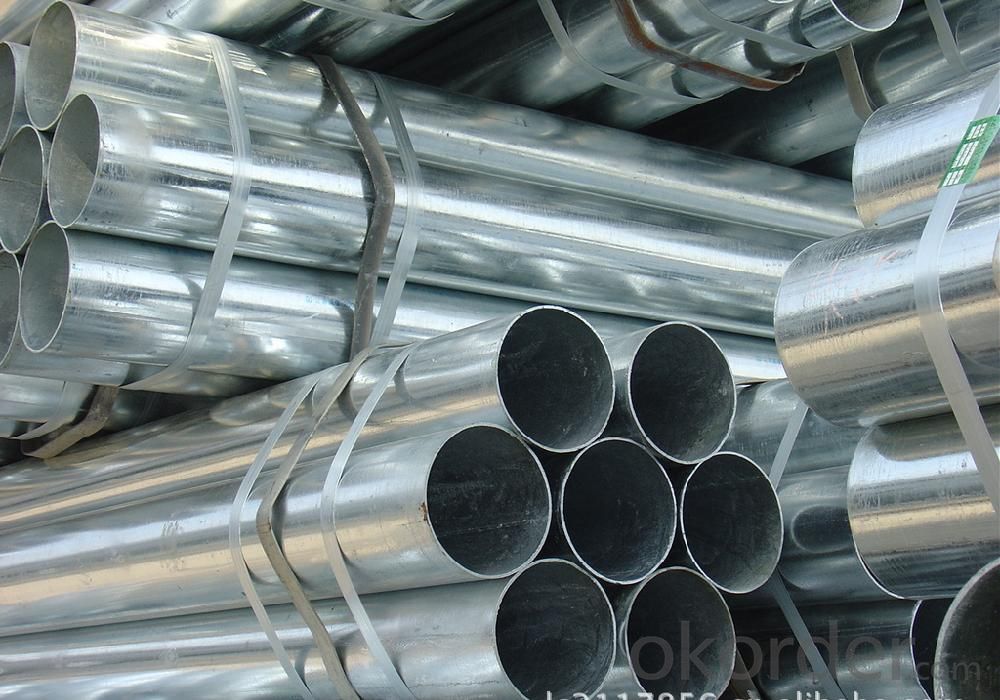
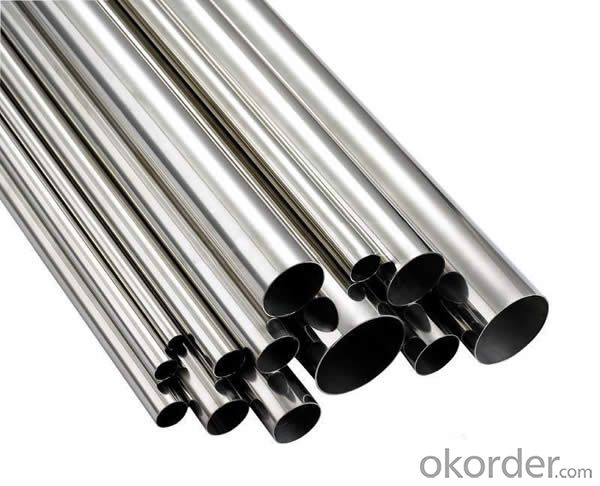
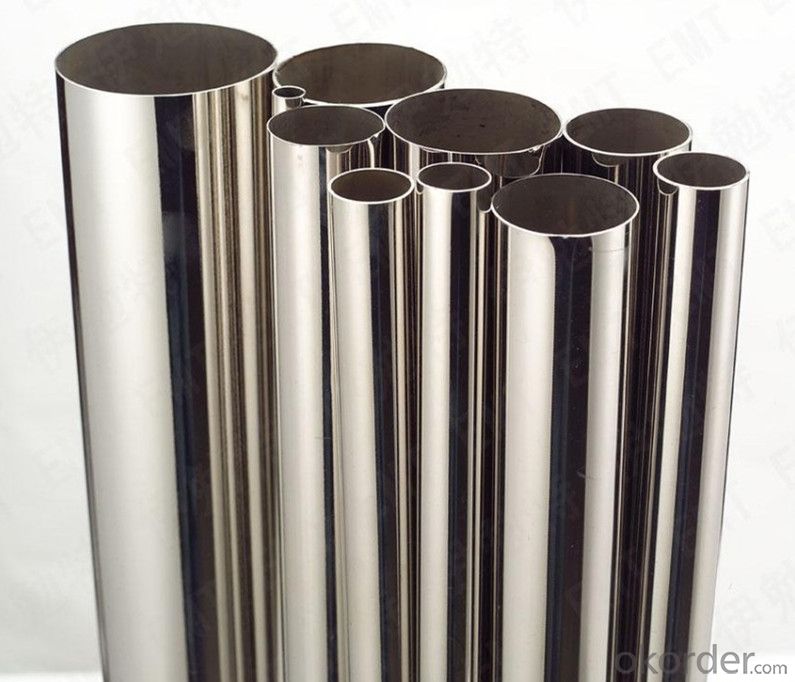
4、Stainless Steel Welded Pipe mechanical Pipe ASTM A554/DIN/EN10296-2/ JIS G3446/GB/T 12770 Specification:
Size:
| OD(mm) | WT(mm) | |||||||||||||
| 0.5 | 0.6 | 0.7 | 0.8 | 0.9 | 1 | 1.2 | 1.5 | 2 | 2.5 | 3 | 4 | 5 | ||
| 9.5 | ||||||||||||||
| 12 | ||||||||||||||
| 1/2' | 12.7 | |||||||||||||
| 13 | ||||||||||||||
| 14 | ||||||||||||||
| 5/8' | 15.9 | |||||||||||||
| 3/8' | 19.1 | |||||||||||||
| 7/8' | 22.2 | |||||||||||||
| 1' | 25.4 | |||||||||||||
| 1-1/8' | 28.6 | |||||||||||||
| 1-1/4' | 31.8 | |||||||||||||
| 1-1/2' | 38.1 | |||||||||||||
| 40 | ||||||||||||||
| 45 | ||||||||||||||
| 2' | 50.8 | |||||||||||||
| 52 | ||||||||||||||
| 2-1/4' | 57.15 | |||||||||||||
| 2-3/8' | 60.3 | |||||||||||||
| 2-1/2' | 63.5 | |||||||||||||
| 70 | ||||||||||||||
| 3' | 76.2 | |||||||||||||
| 85 | ||||||||||||||
| 3-1/2' | 88.9 | |||||||||||||
| 4' | 101.6 | |||||||||||||
| 4-1/8' | 104.78 | |||||||||||||
| 4-1/4' | 107.95 | |||||||||||||
| 4-1/2' | 114.3 | |||||||||||||
| 5-1/4' | 133.35 | |||||||||||||
| 6-1/4' | 158.75 | |||||||||||||
| 8-5/8' | 219.08 | |||||||||||||
Tolerance:
| Standard | OD(mm) | WT(mm) | Tolerance of OD(mm) | Tolerance of WT(mm) | Tolerance of Length(mm) |
| ASTM A554 | ≤12.7 | 0.51~1.24 | ±0.10 | ±10.00%T (±10.00% of nominal wall thickness) | +4.08 -0 |
| >12.7~25.4 | 0.51~1.65 | ±0.13 | |||
| >1.65~3.4 | ±0.25 | ||||
| >25.4~38.1 | 0.64~1.65 | ±0.20 | |||
| >1.65~3.40 | ±0.25 | ||||
| >38.1~50.8 | 0.64~1.24 | ±0.25 | |||
| >1.24~2.11 | ±0.28 | ||||
| >50.8~63.5 | >2.11~3.78 | ±0.30 | |||
| 0.81~1.65 | ±0.30 | ||||
| >1.65~2.77 | ±0.33 | ||||
| >63.5~88.9 | >2.77~4.19 | ±0.36 | |||
| 0.81~4.19 | ±0.36 | ||||
| >88.9~127.0 | 0.89~4.19 | ±0.51 | |||
| >4.19 | ±0.64 | ||||
| >127.0~190.5 | 1.24~6.35 | ±0.64 | |||
| >6.35 | ±0.76 | ||||
| GB/T12770 | <25 | ±0.15 | Clod Rolled ≤0.50 ±0.05 >0.50~1.00 ±0.11 >1.00~2.00 ±0.17 >2.00~3.00 ±7.00%S >3.00 ±10.0%S Hot Rolled ±10.00%S | +20.00 -0 | |
| ≥25~40 | ±0.18 | ||||
| ≥40~50 | ±0.20 | ||||
| ≥50~60 | ±0.23 | ||||
| ≥60~70 | ±0.30 | ||||
| ≥70~80 | ±0.30 | ||||
| ≥80~90 | ±0.30 | ||||
| ≥90~100 | ±0.40 | ||||
| ≥100~200 | ±0.50%D | ||||
| ≥200 | To BeAgreed | ||||
| JIS G3446 | <50 | ±0.25 | <3.00 ±0.30 | +50 -0 | |
| ≥50 | ±0.5% | ≥3.00 ±10.00% |
5、FAQ of Stainless Steel Welded Pipe mechanical Pipe ASTM A554/DIN/EN10296-2/ JIS G3446/GB/T 12770:
①How is the quality of your products?
Our products are manufactured strictly according to national and internaional standard, and we take a test on every pipe before delivered out. If you want see our quality certifications and all kinds of testing report, please just ask us for it.
Guaranteed: If products’ quality don’t accord to discription as we give or the promise before you place order, we promise 100% refund.
②How about price?
Yes, we are factory and be able to give you lowest price below market one, and we have a policy that “ for saving time and absolutely honest business attitude, we quote as lowest as possible for any customer, and discount can be given according to quantity”,if you like bargain and factory price is not low enough as you think, just don’t waste your time.Please trust the quotation we would give you, it is professional one.
③Why should you chose us?
Chose happens because of quality, then price, We can give you both.Additionally, we can also offer professional products inquiry, products knowledge train(for agents), smooth goods delivery, exellent customer solution proposals.Our service formula: good quality+good price+good service=customer’s trust
SGS test is available, customer inspection before shipping is welcome, third party inspection is no problem.
Any question, pls feel free to contact us !
- Q: How much more expensive is 304 stainless steel than 201?
- 304 now it's about 20000 yuan a ton, and 201 is about 15000 tons.
- Q: What is the difference between 304LN and 304 stainless steel pipes?
- The main difference between 304LN and 304 stainless steel pipes lies in their chemical composition and mechanical properties. 304LN stainless steel is a nitrogen-strengthened version of 304 stainless steel. The addition of nitrogen improves its strength and resistance to corrosion, making it suitable for various applications in industries such as food processing, chemical processing, and pharmaceuticals. The nitrogen content in 304LN stainless steel is typically higher than that in standard 304 stainless steel, which enhances its overall performance. On the other hand, 304 stainless steel is a widely used austenitic stainless steel grade known for its excellent corrosion resistance, high-temperature strength, and ease of fabrication. It is commonly used in applications such as kitchen appliances, automotive parts, and architectural components. In terms of mechanical properties, 304LN stainless steel generally exhibits higher tensile and yield strength compared to 304 stainless steel. This makes it more suitable for applications that require increased strength or resistance to deformation. However, it is important to note that the specific mechanical properties may vary depending on the manufacturing process and heat treatment of the stainless steel pipes. In summary, the key difference between 304LN and 304 stainless steel pipes lies in their nitrogen content and resulting mechanical properties. While 304 stainless steel is a versatile and corrosion-resistant grade, 304LN stainless steel offers improved strength and corrosion resistance due to the addition of nitrogen. The choice between the two grades depends on the specific application requirements and the desired combination of properties.
- Q: Can stainless steel pipes be insulated with polylactide-co-glycolide?
- No, stainless steel pipes cannot be insulated with polylactide-co-glycolide as it is a biodegradable polymer commonly used in medical applications, and it may not provide sufficient insulation for pipes.
- Q: What is the difference between 904L and 316L stainless steel pipes?
- 904L and 316L are both types of stainless steel pipes, but they differ in their composition and properties. 1. Composition: The main difference lies in the composition of these two stainless steel grades. 904L contains higher amounts of chromium, nickel, and molybdenum compared to 316L. Specifically, 904L has approximately 25% nickel and 4.5% molybdenum, while 316L contains around 10-14% nickel and 2-3% molybdenum. 2. Corrosion Resistance: Due to its higher chromium, nickel, and molybdenum content, 904L stainless steel pipes exhibit superior corrosion resistance compared to 316L. The higher alloying elements make 904L more resistant to localized corrosion such as pitting and crevice corrosion, especially in aggressive environments like seawater and acidic conditions. 3. Strength and Toughness: 904L stainless steel pipes have higher strength and toughness compared to 316L. This makes them more suitable for applications where greater mechanical properties are required, such as in high-pressure and high-temperature environments. 4. Cost: 904L stainless steel is generally more expensive than 316L due to its higher alloying elements. The increased cost is mainly attributed to the higher nickel and molybdenum content, which are more expensive metals. 5. Applications: 316L stainless steel pipes are commonly used in a wide range of industries, including food processing, chemical processing, and pharmaceuticals, where corrosion resistance and good mechanical properties are essential. On the other hand, 904L stainless steel pipes are primarily used in highly corrosive environments like offshore platforms, petrochemical plants, and desalination plants, thanks to their exceptional resistance to corrosion. In summary, the main differences between 904L and 316L stainless steel pipes lie in their composition, corrosion resistance, strength, cost, and applications. While 316L is suitable for general-purpose applications, 904L is preferred in more demanding and corrosive environments.
- Q: How do stainless steel pipes compare to PVC pipes?
- Stainless steel pipes and PVC pipes are both widely used in various industries and applications, but they have distinct differences that make them suitable for different purposes. One of the key differences is the material composition. Stainless steel pipes are made from an alloy of iron, chromium, and other elements, which provides excellent strength and corrosion resistance. On the other hand, PVC pipes are made from a synthetic plastic polymer known as polyvinyl chloride, which offers good chemical resistance but is not as strong as stainless steel. In terms of strength and durability, stainless steel pipes have the upper hand. They can withstand high pressure and are highly resistant to heat, making them ideal for applications that involve transporting hot liquids or gases. PVC pipes, although not as strong, are lightweight and flexible, which makes them easier to handle and install in certain applications. Another important aspect to consider is the cost. PVC pipes are generally more affordable than stainless steel pipes, making them a popular choice for residential plumbing and other low-pressure applications. Stainless steel pipes, being more expensive, are often used in industrial settings where their superior strength and corrosion resistance are necessary. When it comes to lifespan, stainless steel pipes have a longer life expectancy compared to PVC pipes. Stainless steel is highly resistant to corrosion, rust, and other chemical reactions, which allows it to maintain its structural integrity over a longer period of time. PVC pipes, while durable, can degrade over time due to exposure to UV light, extreme temperatures, and certain chemicals. In terms of environmental impact, PVC pipes have raised concerns over the years due to the production and disposal of PVC, which involves the release of toxic chemicals. Stainless steel pipes, on the other hand, are considered more environmentally friendly as they can be recycled and have a longer lifespan. In summary, stainless steel pipes and PVC pipes have their own unique characteristics and advantages. Stainless steel pipes excel in strength, durability, and corrosion resistance, making them suitable for high-pressure and high-temperature applications. PVC pipes, on the other hand, are lightweight, affordable, and easy to install, making them a popular choice for low-pressure applications. Ultimately, the choice between these two materials depends on the specific requirements and constraints of the project at hand.
- Q: Can stainless steel pipes be bent or shaped easily?
- The flexibility of stainless steel pipes is influenced by several factors, including their thickness, diameter, and grade, which determine how easily they can be bent or shaped. In general, stainless steel pipes possess greater resistance to bending when compared to materials like copper or aluminum. However, by utilizing specialized tools and techniques such as pipe benders or hydraulic presses, it is possible to bend or shape stainless steel pipes according to specific angles or curves. It is worth noting that excessive bending or shaping can potentially weaken or distort the stainless steel pipe, so it is crucial to adhere to proper procedures and guidelines in order to preserve the structural integrity of the pipe.
- Q: What are the standard sizes for stainless steel pipes?
- The standard sizes for stainless steel pipes vary depending on the application and industry. However, commonly used standard sizes range from 1/8 inch to 24 inches in diameter, with wall thicknesses ranging from Schedule 5S to Schedule XXS.
- Q: What are the different types of stainless steel pipe insulation?
- On the market, you can find various stainless steel pipe insulation options. These options differ in terms of their material composition, construction, and insulation properties. One popular option is fiberglass insulation, which involves wrapping a layer of fiberglass material around the stainless steel pipe. This type of insulation is known for its exceptional thermal insulation properties and its ability to withstand high temperatures. It is also resistant to moisture, making it suitable for both indoor and outdoor use. Another option is foam insulation, which is made from a foamed plastic material like polyurethane or polystyrene. Foam insulation is lightweight, easy to install, and provides good thermal and acoustic insulation. It is commonly used in residential and commercial buildings to insulate hot water pipes and HVAC systems. Additionally, there are elastomeric insulation materials, which are flexible rubber-like materials that can be easily wrapped around the stainless steel pipe. These materials are recognized for their excellent thermal insulation properties and their ability to resist moisture and condensation. Elastomeric insulation is frequently used in refrigeration and air conditioning systems. Lastly, there are pre-insulated stainless steel pipe systems, which come with a layer of insulation material already applied to the stainless steel pipe. This type of insulation is commonly used in industrial applications where thermal insulation is critical, such as in chemical plants or oil refineries. To sum up, the available options for stainless steel pipe insulation include fiberglass insulation, foam insulation, elastomeric insulation, and pre-insulated pipe systems. The choice of insulation type depends on factors such as the specific application, desired insulation properties, and budget.
- Q: Are stainless steel pipes suitable for hydraulic applications?
- Yes, stainless steel pipes are suitable for hydraulic applications. Stainless steel is known for its excellent corrosion resistance, which makes it an ideal choice for hydraulic systems that may come into contact with various fluids. Stainless steel pipes have high strength and durability, allowing them to withstand high pressure and temperature conditions commonly encountered in hydraulic systems. Additionally, stainless steel pipes offer excellent dimensional stability and can maintain their shape and integrity even under extreme operating conditions. Due to their resistance to corrosion, stainless steel pipes also provide a longer service life compared to other materials, reducing the need for frequent replacements and maintenance. Overall, stainless steel pipes are a reliable and efficient choice for hydraulic applications.
- Q: Are stainless steel pipes suitable for food processing plants?
- Stainless steel pipes are an ideal choice for food processing plants due to their numerous advantageous properties. Firstly, their resistance to corrosion is crucial in an environment where food products undergo processing. The prevention of corrosion is essential to ensure the safety and integrity of the food being processed. Secondly, stainless steel pipes are easy to clean and maintain. Their smooth surface prevents the buildup of food particles and bacteria, making them hygienic and easily sanitizable. This is especially important in food processing plants where cleanliness and food safety are top priorities. In addition, stainless steel is a non-reactive material, meaning it does not release any harmful substances into the food being processed. This ensures that the quality and taste of the food remain unaffected by the piping material. Furthermore, stainless steel pipes possess excellent heat resistance, allowing them to withstand high temperatures without warping or distorting. This makes them suitable for various food processing operations that involve heat, such as pasteurization or sterilization. To summarize, stainless steel pipes are highly suitable for food processing plants due to their resistance to corrosion, ease of cleaning, non-reactivity, and heat resistance. They contribute significantly to maintaining the safety, hygiene, and quality standards required in the food industry.
Send your message to us
Stainless Steel Welded Pipe mechanical Pipe ASTM A554/DIN/EN10296-2/ JIS G3446/GB/T 12770
- Loading Port:
- Ningbo
- Payment Terms:
- TT OR LC
- Min Order Qty:
- 25 m.t.
- Supply Capability:
- 5000 m.t./month
OKorder Service Pledge
OKorder Financial Service
Similar products
Hot products
Hot Searches
Related keywords
